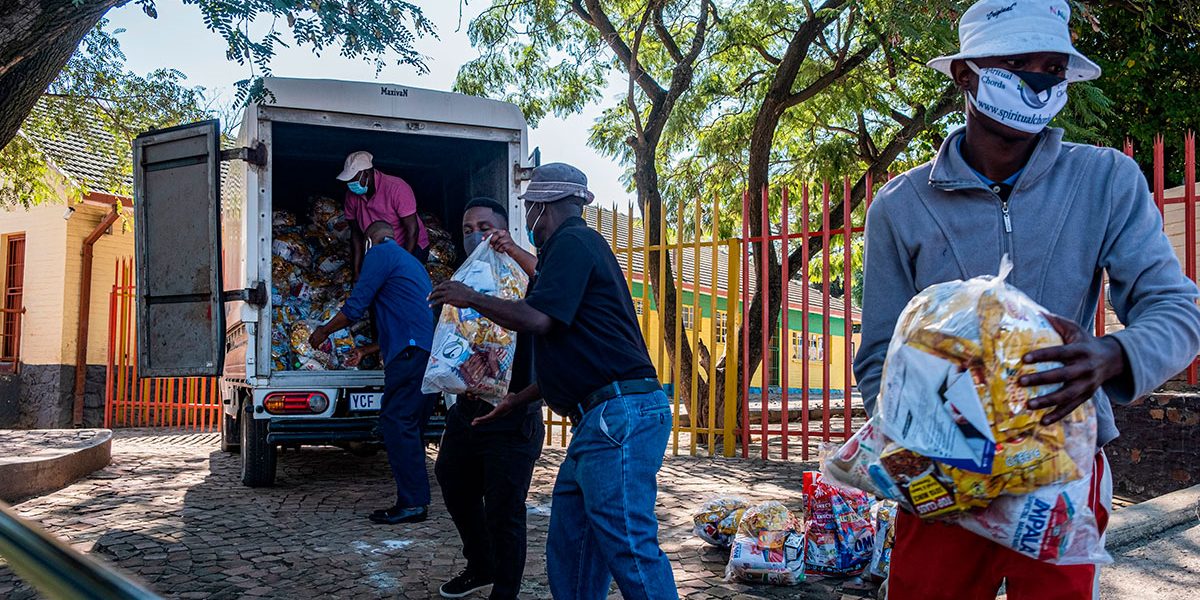Potential damage of COVID-19
Before COVID-19, the IMF economic growth forecast for the continent this year was 3.2%, with 16 African countries amongst the 30 best performing in the world, and more than half of the population in the continent living in countries with 5% economic growth or more.
The naysayers will point to the myriad of problems the African continent has not been able to address, and they are right. Inequality, unemployment, lack of proper safety nets and slow structural transformation progress are sizable challenges, not fake news.
But we are forced to admit the positive changes taking place in many fronts are notable; allowing Africa to post in the last two decades some of its best socio-economic indicators since independence.
Our COVID-19 policies should recognize public services as public goods that need to be properly funded. They are investments in social capital, not liabilities.
Tweet
In just a few weeks all the above seemed like history. The competition is now to size the amount of damage COVID-19 will cause. McKinsey predicts a loss in the continent between $90 and $200bn this year; the World Bank estimates an economic contraction between 2.6% and 7% while the African Union predicts a more modest drop of 1.1% from earlier growth projections, if the crisis lasts a few months.
Scarier global forecasts such as the ILO are projecting 200 million jobs at risk; UNCTAD estimating a 40% foreign direct investment contraction, the WTO is worried about a fall between 13% and 32% of world trade. With the IMF talk of serious recession already upon us, let our imagination worry about the size these impacts will have across Africa.
“A perfect storm is brewing”
African leaders have been swift in taking measures to flatten the virus infections’ curve, such as curfews or more stringent confinement rules; imitating similar measures taken by more powerful economies. The difference is that rich countries can attenuate the damaging economic costs of social distancing with compensatory packages that protect employment and social safety nets. Such measures drag economies into a halt. This is hard to follow for most African countries.
Additional health-related costs necessary to combat the pandemic are punitive for African economies to face at the time of shrinking fiscal space. With 22% of revenues being used to service sovereign debt, local currencies are losing up to 30% of their exchange rate value, evaporating income from depressed commodity prices and a stoppage of global value chains. Indeed a perfect storm is brewing, and it’s one that’s risks evaporating the immense reform efforts of the last two decades.
It is reassuring though, to realize that COVID-19 has democratized this crisis.African dilemmas and difficulties may be one gamut higher than rest, but it seems that the world is in this together. Flattening the curve only serves to give respite to overwhelmed health facilities and personnel, falling short of eliminating the threat. The virus can come back in a second or third wave. Since we cannot quarantine inequality, the virus can viciously take shelter amongst the less protected in order to strike again when convenient.
Changing roles of states
The best examples of structural transformation taking shape in Africa were inspired by the developmental state model that has successfully achieved both economic growth and historical poverty reduction and social transformation across South East Asia and in China.
The role states are already playing and will continue to play in OECD countries – with historical stimulus packages, historical debt to GDP ratios, historical social spending and historical domestic consumer lending – will hopefully curtail any criticism of what Africans were trying themselves to do, albeit in a more modest way and with limited resources.
In just a few weeks COVID-19 has managed to suspend essential activities and production lines all over the world. An economic system which we were told was impossible to slow down or redirect just seized. To the ecological arguments on the change of richer countries and elites’ lifestyles, we always opposed the argument of the rules of the markets, even their exuberance. Yet the world reversed gears fast this time.
The new economic policy debate playing field can makes us believe it should be possible to calmly address divergent views about the preferred trajectory for Africa’s structural transformation.
Dr. Carlos Lopes is a Professor at the Mandela School of Public Governance at the University of Cape Town and Visiting Professor at Sciences Po, Paris. He is currently also the African Union High Representative for Partnerships with Europe.
The is an abridged version of an article that was published in The Africa Report on 14 April 2020.

